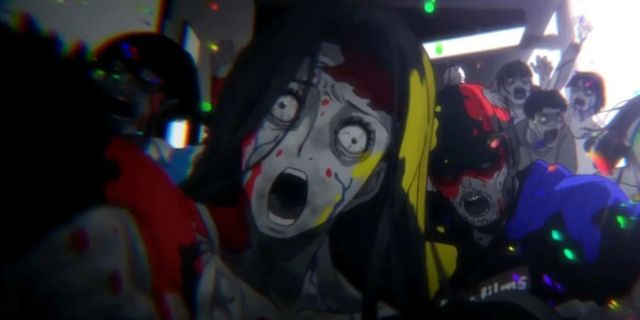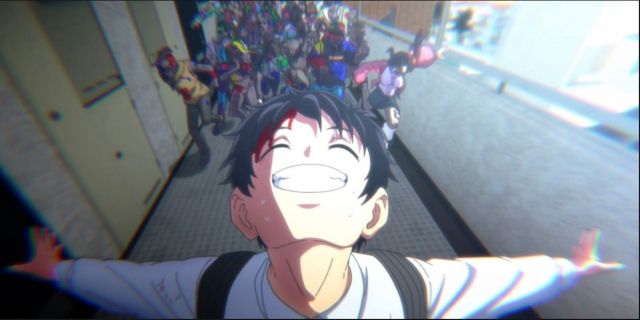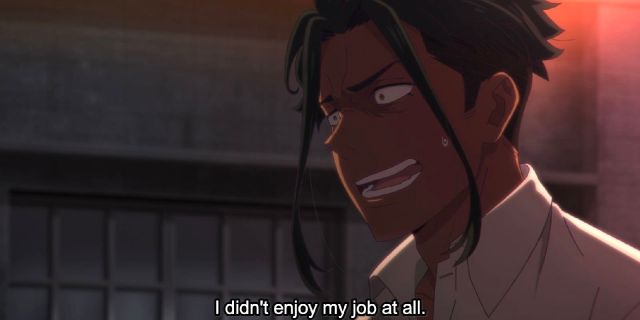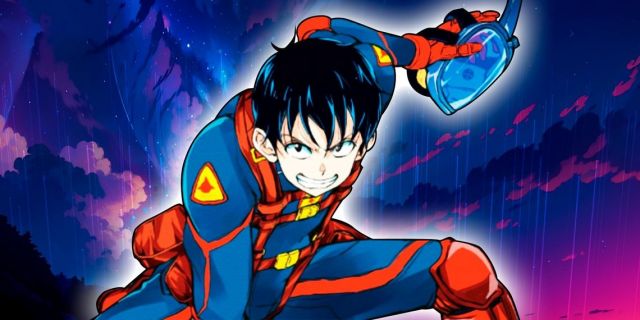Zom 100: Bucket List of the Dead stands out as a groundbreaking series in multiple aspects. Its stunning visuals and relatable characters are just the beginning of its innovation. What truly sets Zom 100 apart is its unique approach to utilizing these elements to highlight the potential benefits of societal upheaval. In a refreshing twist on the typical zombie trope, Zom 100 skillfully sheds light on real-world issues that are prevalent in modern society. The protagonist, trapped in an exploitative corporate job, gradually transforms into a figurative zombie himself.
However, everything changes when the world is overrun by actual zombies. Surprisingly, amidst this chaos, he discovers the freedom to be his authentic self and pursue his long-desired aspirations. Through this narrative, Zom 100 suggests that embracing revolutionary change might be the key to genuine freedom for individuals. It cleverly raises the question of whether breaking away from the status quo could lead to a more fulfilling life, addressing the notion that social upheaval, rather than being feared, could offer opportunities for personal growth and self-discovery.

Zombies have unquestionably become a staple of modern media, with huge franchises like The Walking Dead and The Last of Us revolving around the idea of decaying corpses roaming the earth. While those series in particular have a sense of realism in terms of the gore and terror that would logically follow the rising of the dead in real life, they still ultimately focus on a purely fictional concept. While decomposing bodies feasting on human flesh is a scary idea, it is still an idea that requires an imagination to bring to life. On the other hand, Zom 100 looks at another sense of the idea of the zombie that is very much relevant to the world as it is in reality.
In fact, zombies in Zom 100 reflect at least two concepts. In one way, they represent the working class individual who is forced to put their true desires on hold in order to mindlessly pursue financial gain for survival. On the other hand, the zombie represents the mass of people who may rise up to disrupt the status quo. The latter has always been inherent in zombie-themed media like The Walking Dead, but those zombies are almost always viewed as a horrifying antagonist that must be eradicated. In Zom 100, the zombies are actually the source of Akira’s happiness because they upend a social fabric which was not conducive to him exploring his freedom.
The humanization of zombies is carried out early in the series when Akira takes on the characteristics of a zombie. Akira does not start off working at an outwardly terrible job. He lands his dream job, but even in that situation he learns that there is something fundamentally wrong with the concept of the workplace itself. He has no time to himself, feels alienated from other people, and does not feel excited for tomorrow. That’s why when the zombies do take over, Akira does not go all-out killing them like they do the zombies in other shows. Instead, when he sees that his boss and his old crush are now walking corpses, he addresses them both as though they were still consciously aware human beings.
Why Akira Is Happier in a World of Zombies

Akira states multiple times following the zombie apocalypse how happy he is that he doesn’t have to go to work anymore. In fact, now that the world as he knew it has ended, he finally has a chance to do the 100 things he has always wanted to do before he dies. In this way, his life only began when the world ended. Visually, Zom 100 highlights the positive change that the apocalypse has had on Akira. Before the zombies took over, the world was grey and dull, but after the apocalypse, Akira’s world is suddenly full of beautiful splashes of color.
This change isn’t just restricted to Akira though. Even a character who was first presented as the antithesis of the capitalist zombie, Kencho, is not so cut-and-dry. A year before the zombie apocalypse occurred, Kencho and Akira met up to share drinks and talk about their lives. In contrast to Akira’s depressing, zombie-like aura, Kencho came off as a confident, well-put-together individual who was happy with his life. Kencho even suggests to Akira that he should simply leave his exploitative job in order to find a better position; in turn suggesting that freedom can still be possible within that system and that Akira is just doing it wrong. However, as Akira later learns, Kencho was only putting up a front of happiness and success because that was the kind of persona he needed in order to be successful. In reality, Kencho felt just as empty and alienated as Akira, but he didn’t even have the liberty of admitting his own feelings to himself due to the nature of his relationship to work.
Zom 100 Suggests Everyone “Take The Leap”

Episode three of Zom 100 ends with Akira and Kencho getting stuck on the roof of a building. The only way to escape the zombies that are chasing them is to leap across a huge gap between buildings – something that Akira executes with apparent ease. For Kencho though, this proves a much harder task because he doesn’t believe he can actually make it across. Only after admitting that he hated his job and always wanted to be a stand-up comedian does the weight get lifted off Kencho’s shoulders, finally enabling him to take that leap of faith. The metaphor is in no way subtle, especially since Akira suggests that Kencho “quit his job” right at that moment; an action that should technically be null and void due to the dystopian world they now inhabit.
Another interestingly comedic aspect of this metaphor is the fact that Kencho loses all his clothing in midair as he is leaping between buildings. While it’s used as a humorous gag for the characters, when looked at in context of the larger symbolism at work the message becomes clearer. Kencho’s nakedness demonstrates how he no longer has anything to hide, and that he is finally willing to show his true, genuine self to the world. This imagery is emphasis in the following scene, where both Akira and Kencho sit together around a fire, both completely in the nude, drinking beers and sharing their feelings to one another. Being that the nudity is entirely unnecessary in this situation, it only further highlights its use as a symbol. Only by stripping away the outer layers of the beliefs and fears that held them back from taking that leap of faith could the characters of Zom 100 finally regain a sense of true freedom, and thus freely express themselves to one another. This is a powerful message that can apply for anyone in any political or economic system, though it happens to only be possible for Akira and Kencho when their own socioeconomic system has been completely torn down.















Leave a Reply